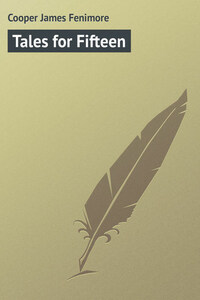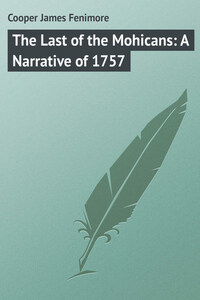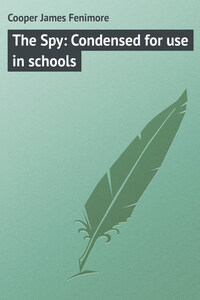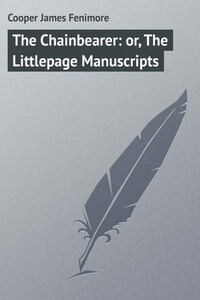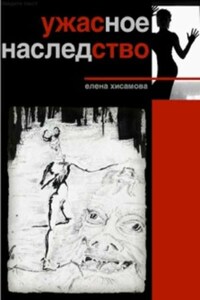INTRODUCTION
On 1 February 1823 Charles Wiley published in New York The Pioneers, a new book by the author of The Spy; by noon he had sold 3,500 copies – a record-making sale by the bookselling standards of the time. On 26 June, almost five months later, Wiley quietly offered, as we know from a notice in The Patriot, a New York newspaper, "Tales for Fifteen, or Imagination and Heart, an original work in one volume, by Jane Morgan, price 75c." The actual author was the author of The Spy; and the two stories, "Imagination" and "Heart," were obviously imitations of Mrs. Amelia Opie's popular moral tales, published, as the paper cover noted, when The Spy was in its fourth edition, The Pioneers in its third, and The Pilot in press. The sale was so small that only four copies are known to be extant. Why, one may ask, did James Cooper, who was in 1823 a writer of national and international reputation, publish this volume of imitative stories for adolescent girls, even though his identity was carefully concealed?
According to Cooper's own account, Tales for Fifteen was written and given to Charles Wiley as a gesture of friendship to help the publisher out of financial difficulties. This explanation was echoed by the novelist's daughter Susan in a letter reprinted from the Cooperstown Freeman's Journal in The Critic on 12 October 1889. It is true that Wiley was having financial troubles in 1823, and Cooper undoubtedly gave him the proceeds from Tales for Fifteen; but to suppose, as full acceptance of this explanation requires, that Cooper reverted, even momentarily, to the repudiated literary models of his first book Precaution after the phenomenal success of The Spy would be to infer in him an almost total want of critical judgment and common sense. The real explanation, which Cooper might have been embarrassed to furnish and which the chronology of publication has obscured, lies in a hitherto unsuspected phase of the curious story of Cooper's entrance to authorship.
Cooper wrote Andrew Thompson Goodrich, his first publisher, on 31 May 1820, that Precaution had been preceded by an experimental effort to write a short moral tale. Mrs. Opie's Simple Tales (1807) and Tales of Real Life (1813) would have been among the obvious models. Finding the tale "swell to a rather unwieldy size," Cooper explained, "I destroy'd the manuscript and changed it to a novel." Precaution, which was completed on 12 June 1820, was probably written within a month; and before the novel had begun its tortuous way through the press, Cooper commenced the writing of The Spy. By 28 June he had completed "about sixty pages," presumably manuscript pages; and as the writing proceeded and his enthusiasm for the new work mounted, his expectations for the success of Precaution diminished. He wrote Goodrich on 12 July: "The 'Spy' goes on slowly and will not be finish'd until late in the fall – I take more pains with it – as it is to be an American novel professedly." In fact, The Spy was completed only a short time before its publication in New York on 22 December 1821.
During the eighteen months between the inception and publication of The Spy Cooper saw Precaution through the press, joined the New York literary circle which frequented Charles Wiley's bookshop, transferred his publishing business to Wiley, wrote three or four long book reviews for his friend Charles K. Gardner's Literary and Scientific Repository, finished The Spy, and commenced The Pioneers. While the period was, thus, not devoid of literary activity, it was, as the 1831 Preface to The Spy confessed, a period of acute uncertainty. Having discovered his literary talent, Cooper had yet to discover how to use it profitably, had indeed to be reassured of its true direction. He could not afford to write at all unless he could make his new profession pay handsomely. Precaution had been a deliberate attempt to produce a bestseller, and it succeeded only moderately. As the Preface to the first edition of The Spy indicates, Cooper experienced severe self-doubts and self-questionings about this experiment. For an extended period, most probably during the first six months of 1821, he abandoned work on The Spy, which had been noticed as in press in the January issue of the Repository, fearing that the book could not succeed. It was almost certainly during this time that he conceived and partly executed another literary project of which Tales for Fifteen is the abortive remains.
As Cooper's hopes for The Spy faded, his confidence in the viability of the type of imitative writing he had attempted in Precaution appears to have revived. Precaution was reviewed in a most laudatory manner in the Repository for January 1821, and the comment accompanying the notice of publication in the Repository was: "We only regret that the scene of this novel was not laid in America." Whether Cooper persuaded himself or allowed himself to be persuaded by Wiley, Gardner, and other friends, he seems to have decided that his mistake in
